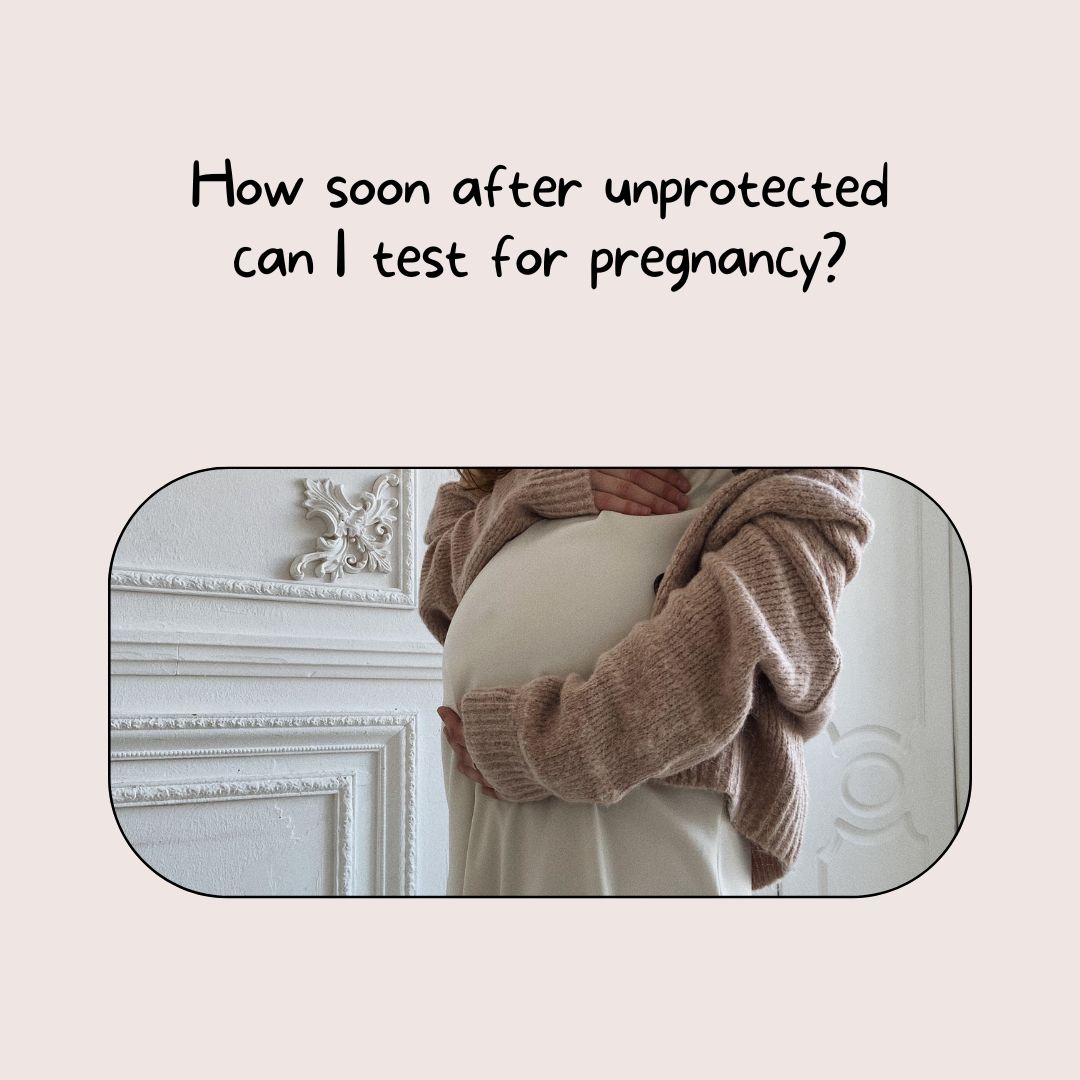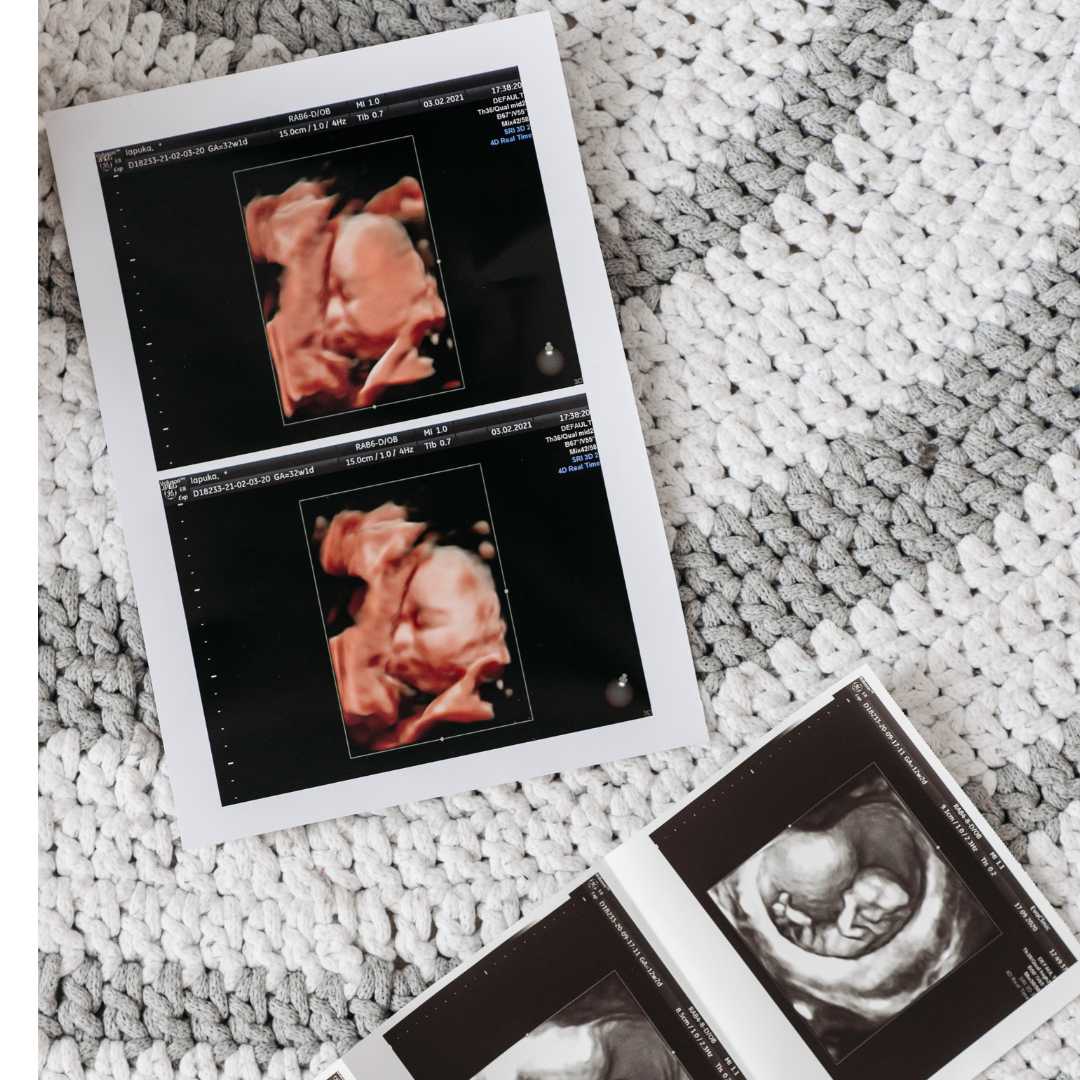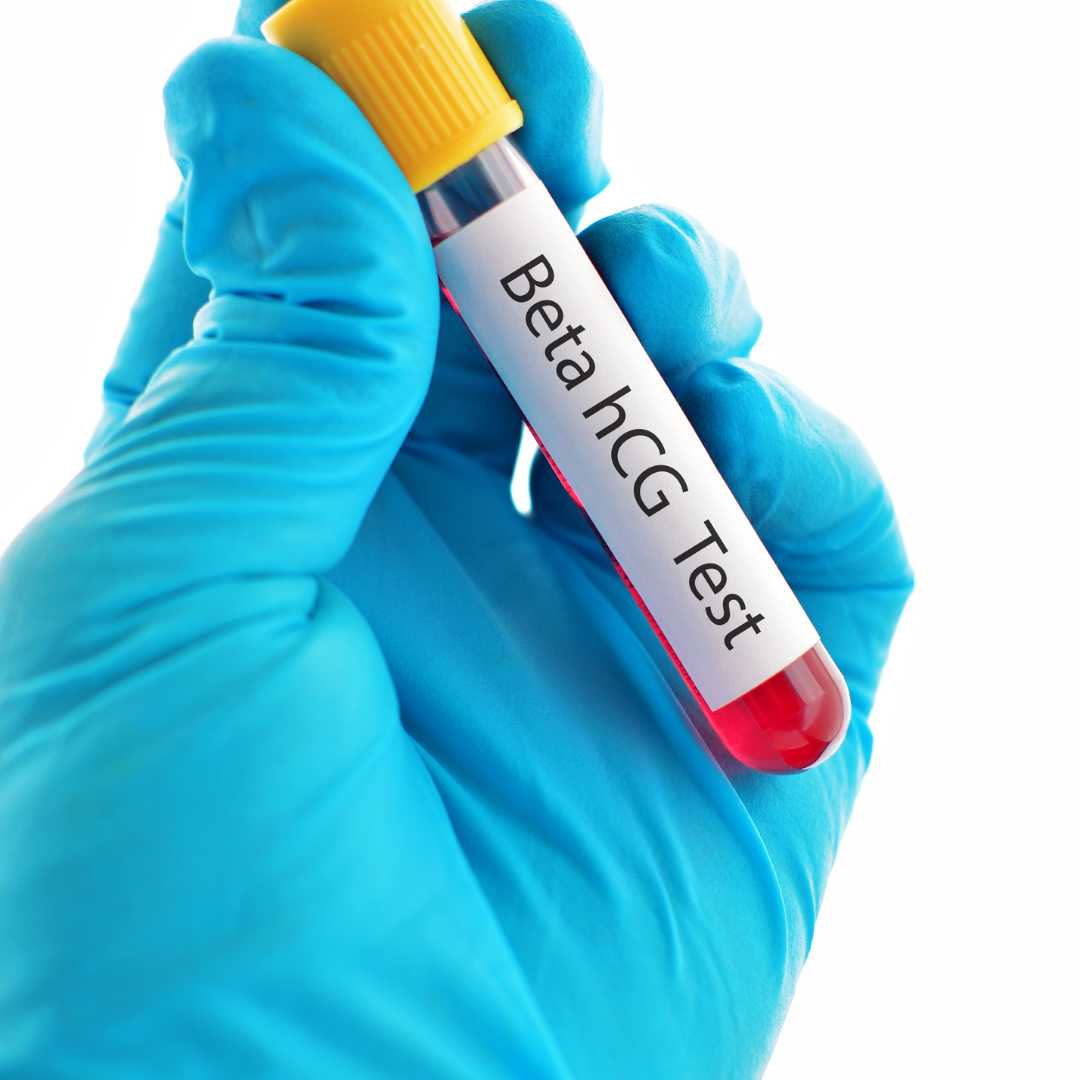How soon after unprotected can I test for pregnancy?

How soon after unprotected can I test for pregnancy? Knowing when to take a pregnancy test can be crucial for those who have had unprotected sex and are concerned about the possibility of pregnancy. Understanding the factors that affect the timing of pregnancy tests, the accuracy of different tests, and the signs and symptoms of pregnancy can help you determine when to take a test and what to do with the results.
How soon after unprotected can I test for pregnancy?
Pregnancy tests work by detecting the presence of human chorionic gonadotropin (hCG), a hormone that is produced by the placenta after a fertilized egg implants in the uterus. The amount of hCG in the body increases rapidly in the first few weeks of pregnancy, making it possible to detect pregnancy with a urine or blood test.

Factors That Affect How Soon You Can Test for Pregnancy
The timing of a pregnancy test depends on several factors, including the ovulation cycle, the timing of sexual intercourse, the implantation of the fertilized egg, and the sensitivity of the pregnancy test.
Ovulation cycle: Women who have irregular cycles may have difficulty determining when to take a pregnancy test. It is best to wait until you have missed a period to take a test.
Timing of sexual intercourse: If you have had unprotected sex during your fertile window, which is usually around the time of ovulation, you may be able to take a test as early as 7-10 days after intercourse.
Implantation of fertilized egg: The timing of implantation can vary, but it usually occurs 6-10 days after ovulation. This means that you may be able to take a test as early as 8-10 days after ovulation.
Sensitivity of pregnancy tests: Some pregnancy tests are more sensitive than others and can detect hCG at lower levels. This means that you may be able to take a test earlier with a more sensitive test.
Earliest Time to Take a Pregnancy Test
There are two types of pregnancy tests available – urine tests and blood tests. Urine tests are the most commonly used and can be purchased over the counter at drug stores. Blood tests are usually done at a doctor’s office or clinic.

Urine tests detect the presence of hCG in the urine and can be taken as early as 7-10 days after ovulation. However, the accuracy of the test may be lower if taken too early. Blood tests are more sensitive and can detect hCG as early as 6-8 days after ovulation.
What Are the Signs and Symptoms of Pregnancy?
Early signs of pregnancy may include missed periods, nausea, fatigue, and breast tenderness. Common symptoms of pregnancy include increased urination, food cravings, and mood swings. It is important to note that these symptoms can also be caused by premenstrual syndrome (PMS) and may not necessarily indicate pregnancy.
When to Take a Pregnancy Test After a Missed Period
A missed period is often the first sign of pregnancy. It is recommended to wait at least a week after a missed period to take a pregnancy test for the most accurate results. If the test is negative and you still haven’t had a period, it may be a good idea to take another test a week later or to consult with a healthcare provider.
When to Take a Pregnancy Test Before a Missed Period
Early pregnancy tests can be taken up to six days before a missed period. These tests are more sensitive and can detect lower levels of hCG in the body. However, the accuracy of the test may still be lower if taken too early.
Types of Pregnancy Tests Available
There are two main types of pregnancy tests: urine tests and blood tests. Urine tests can be purchased over the counter and are the most common type of pregnancy test. These tests detect the presence of hCG in the urine, which is produced by the placenta after implantation of a fertilized egg.
Blood tests, on the other hand, are performed in a medical facility and are more accurate than urine tests. There are two types of blood tests: qualitative and quantitative. Qualitative tests only detect the presence of hCG, while quantitative tests measure the amount of hCG in the blood. Quantitative tests are often used to monitor hCG levels during early pregnancy and to diagnose ectopic pregnancies.
How Pregnancy Tests Detect the Presence of hCG
All pregnancy tests detect the presence of human chorionic gonadotropin (hCG), a hormone produced by the placenta after the implantation of a fertilized egg. Urine tests typically use antibodies to detect hCG in the urine, while blood tests can detect much smaller amounts of hCG than urine tests.
Accuracy of Different Pregnancy Tests
The accuracy of a pregnancy test depends on several factors, including the sensitivity of the test, the timing of the test, and the user’s ability to follow the instructions correctly. Urine tests are generally accurate about a week after a missed period, with some tests claiming to detect pregnancy even earlier. Blood tests are more accurate and can detect pregnancy as early as six to eight days after ovulation.
How Soon After Sex Can You Take a Pregnancy Test?
The earliest you can take a pregnancy test is about two weeks after ovulation, which is usually around the time of your expected period. However, some tests claim to be able to detect pregnancy even earlier. Keep in mind that the timing of sexual intercourse and implantation of a fertilized egg can affect the accuracy of a pregnancy test.
What Are the Signs and Symptoms of Pregnancy?
Early signs of pregnancy include missed periods, fatigue, nausea, and breast tenderness. As the pregnancy progresses, other symptoms may appear, such as frequent urination, constipation, and mood swings. It’s important to note that many of these symptoms can also be attributed to premenstrual syndrome (PMS), making it difficult to differentiate between the two.
When to Take a Pregnancy Test After a Missed Period
A missed period is often the first sign of pregnancy, and you should take a pregnancy test as soon as possible after a missed period. Urine tests are generally accurate about a week after a missed period, while blood tests can detect pregnancy as early as six to eight days after ovulation.
Accuracy of Pregnancy Tests After a Missed Period
The accuracy of a pregnancy test after a missed period depends on several factors, including the sensitivity of the test and the timing of the test. Urine tests are generally accurate about a week after a missed period, while blood tests are more accurate and can detect pregnancy as early as six to eight days after ovulation.
When to Take a Pregnancy Test Before a Missed Period
Early pregnancy tests, also known as early response tests, claim to be able to detect pregnancy several days before a missed period. These tests are more sensitive than traditional pregnancy tests and can detect pregnancy as early as five to six days before a missed period.
Accuracy of Early Pregnancy Tests
The accuracy of early pregnancy tests depends on several factors, including the sensitivity of the test and the timing of the test. Early pregnancy tests can detect pregnancy as early as five to six days before a missed period, but their accuracy may vary.
Tips for Accurate Results
To ensure accurate results, it is important to take the pregnancy test at the right time and follow the instructions carefully. It is also recommended to check the expiration date of the test and store it properly. If the test shows any signs of damage or has been exposed to extreme temperatures, it may not provide accurate results.
Common Mistakes to Avoid
One common mistake when taking a pregnancy test is not reading the results within the recommended time frame. Waiting too long to read the results can result in false positives or false negatives. It is also important to follow the instructions carefully and avoid drinking excessive amounts of fluids before taking the test.
What to Do If You Get a Negative Pregnancy Test
If you receive a negative pregnancy test result and still have not started your period, it is recommended to wait a few days and retest. If you are concerned about the results or experience any unusual symptoms, it is also recommended to consult with a healthcare provider.
Reasons for a False Negative
There are several reasons why a pregnancy test may show a false negative result, including taking the test too early, not following the instructions properly, or using an expired or damaged test. In some cases, women may experience a chemical pregnancy, which occurs when a fertilized egg implants but does not develop properly, resulting in low levels of pregnancy hormones.
2 Comments